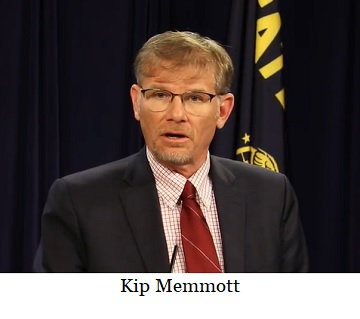OHCS now tasked with administering millions to homeless
As the COVID-19 pandemic turned into a lockdown of businesses and schools by Governor Kate Brown, thousands of Oregonians were threatened with eviction. As their income diminished, they struggled to pay rent in an economy that had stalled. In December 2021 the Legislative Housing Committee requested an audit of the Emergency Rental Assistance Program (Oregon ERA).
Oregon ERA was created to provide federal funding to help keep Oregonians in their homes. Oregon’s housing agency, Oregon Housing and Community Services (OHCS), was charged with administering the program under enormous pressure to get millions of dollars out the door as quickly as possible.
OHCS was able to distribute $426 million in emergency rental assistance as of June 2023. But according to the Oregon Audits Division
audit, the framework under which this occurred came with substantial risk. A year into the pandemic in 2020, OHCS agrees with auditors that, like many other government and non-governmental
organizations, the agency was unprepared for the magnitude and scale of multiple emergencies. Oregon ERA suffered from the rushed implementation of new software and a fragmented customer service system resulting in application processing delays and communications challenges that frustrated consumers and local partners.
Oregon Secretary of State LaVonne Griffin-Valade said in a statement, “The urgency with which OHCS acted to distribute rental assistance during a global crisis is laudable. As auditors, it’s our job to ensure state agencies properly account for how they spend public money. I encourage OHCS to work speedily to implement the recommendations in this report in preparation for future emergencies.”
According to the audit, "While the urgency brought by this situation was understandable, it’s still critically important agencies implement adequate financial controls to ensure funds are distributed to the people who should be receiving them. Money that is spent out of compliance with federal guidelines runs the risk of being clawed back by the federal government. Fraud was a major risk for Oregon ERA." According to multiple community action agencies, they denied approximately $37 million requested through 1,813 potentially fraudulent applications.
OHCS employed limited oversight of the funds and, in its haste, skipped critical controls, including over financial accounting and contract administration. These same control weaknesses were highlighted by financial auditors in the Statewide Single Audit released earlier this year. In fact, the severity and pervasive aspect of the control weaknesses led financial auditors to issue an adverse opinion for the program — the first from the division in more than 25 years.
While the urgency brought by this situation was understandable, it’s still critically important agencies implement adequate financial controls to ensure funds are distributed to the people who should be receiving them. Money that is spent out of compliance with federal guidelines runs the risk of being clawed back by the federal government. Fraud was a major risk for Oregon ERA; according to multiple community action agencies, they denied approximately $37 million requested through 1,813 potentially fraudulent applications.
“There is no doubt OHCS, like all of Oregon government, was working under unprecedented emergency conditions during the pandemic,” said Audits Director Kip Memmott. “As auditors, it’s our job to ensure public monies are being spent in accordance with program guidelines and properly accounted for. It’s extremely concerning that OHCS is unable to verify whether millions of dollars went to the Oregonians who needed and deserved this money the most.”
A D V E R T I S E M E N T

A D V E R T I S E M E N T
Auditors have multiple recommendations for OHCS, among them:
- Better prepare for future emergencies given the agency’s important role under Oregon’s emergency management framework, including conducting an after-action review of Oregon ERA with local partners;
Improve internal controls over contract monitoring;
- Improve internal controls over reporting program outcomes, especially when it comes to reporting the number of Oregon ERA applications paid, households assisted and dollars spent;
- Improve internal controls over detecting and preventing fraud; and
- Continue efforts to obtain timely, complete, and quality client data to better understand and respond to Oregon’s housing needs.
Oregon ERA ended on June 2023. However, the lessons learned from this program are still applicable. OHCS has now been tasked with administering millions of dollars to address Oregon’s ongoing homelessness crisis, a major priority for Governor Tina Kotek. This can be troublesome since
OHCS disagrees with the audit on the after-action process including systems oversight of benefit measurement, and they lacked reporting to ensure systems are functioning as expected.
Other recommendations were only partially agreed to being correct. OHCS must implement audit recommendations and apply lessons learned, if Oregonians can be reassured OHCS can successfully and properly accounted for the Governor’s homeless program.
--Donna Bleiler| Post Date: 2024-01-19 13:19:01 | Last Update: 2024-01-19 15:22:40 |







